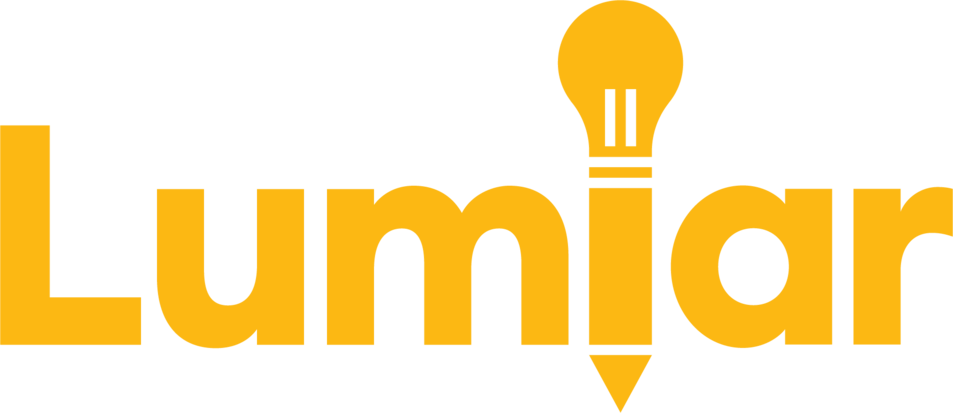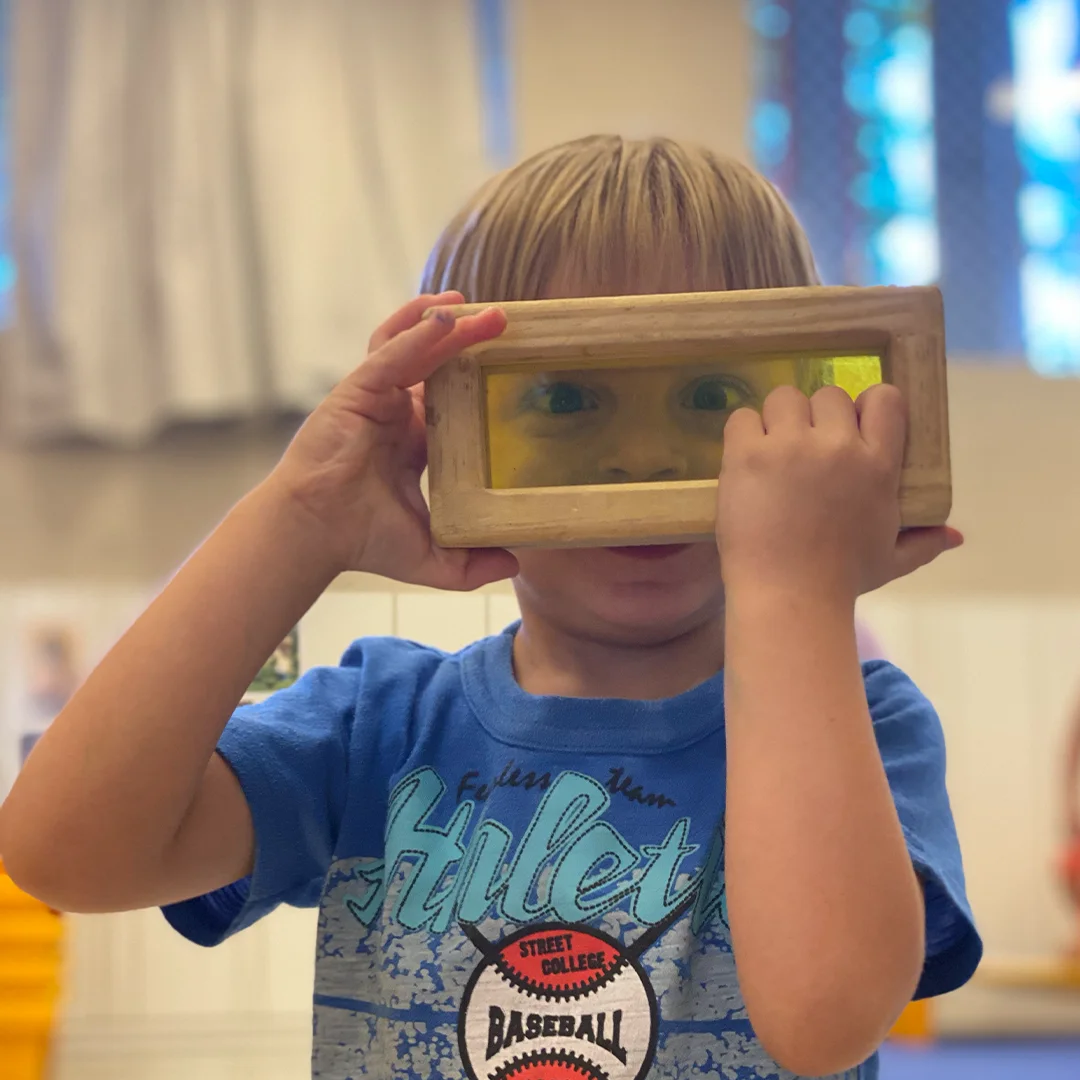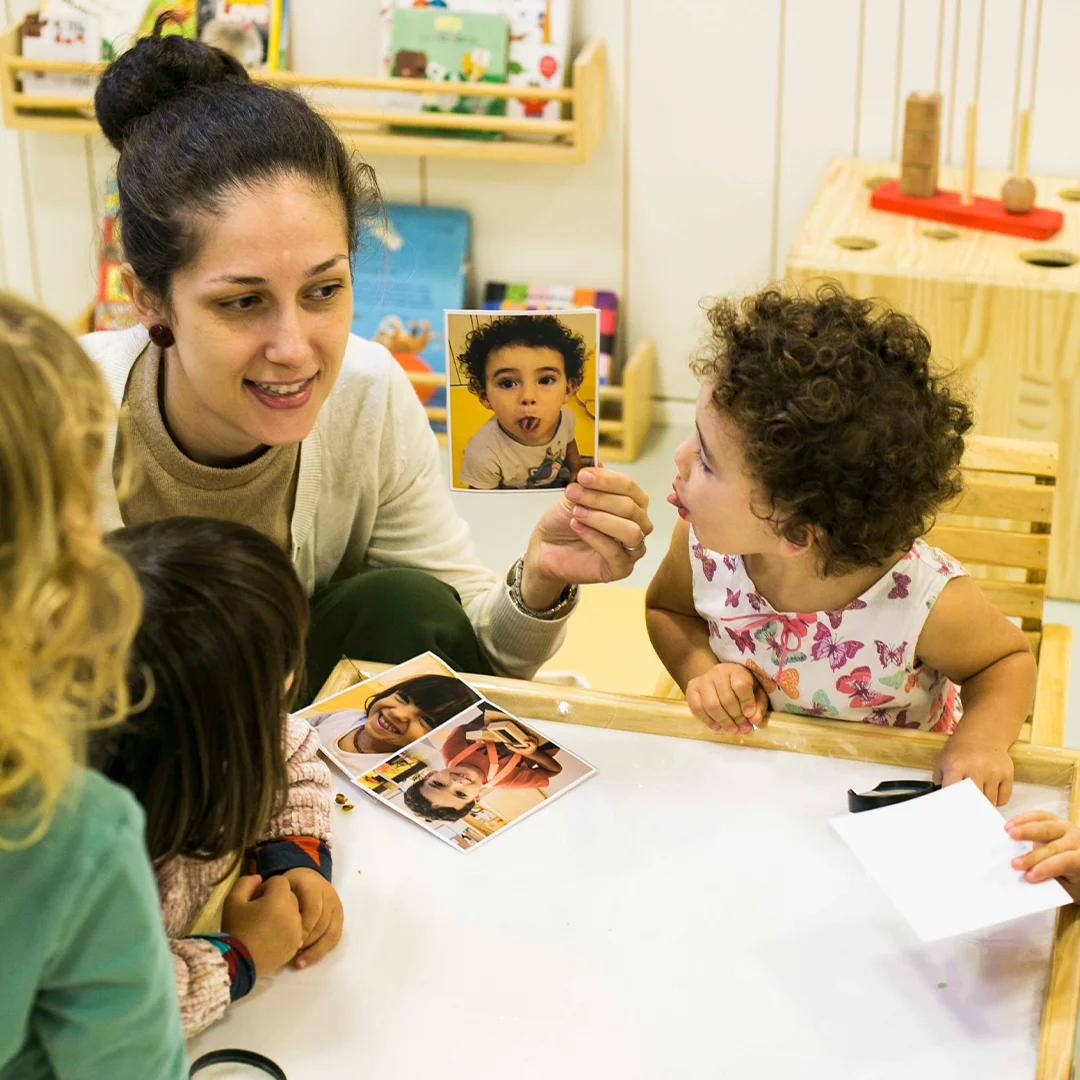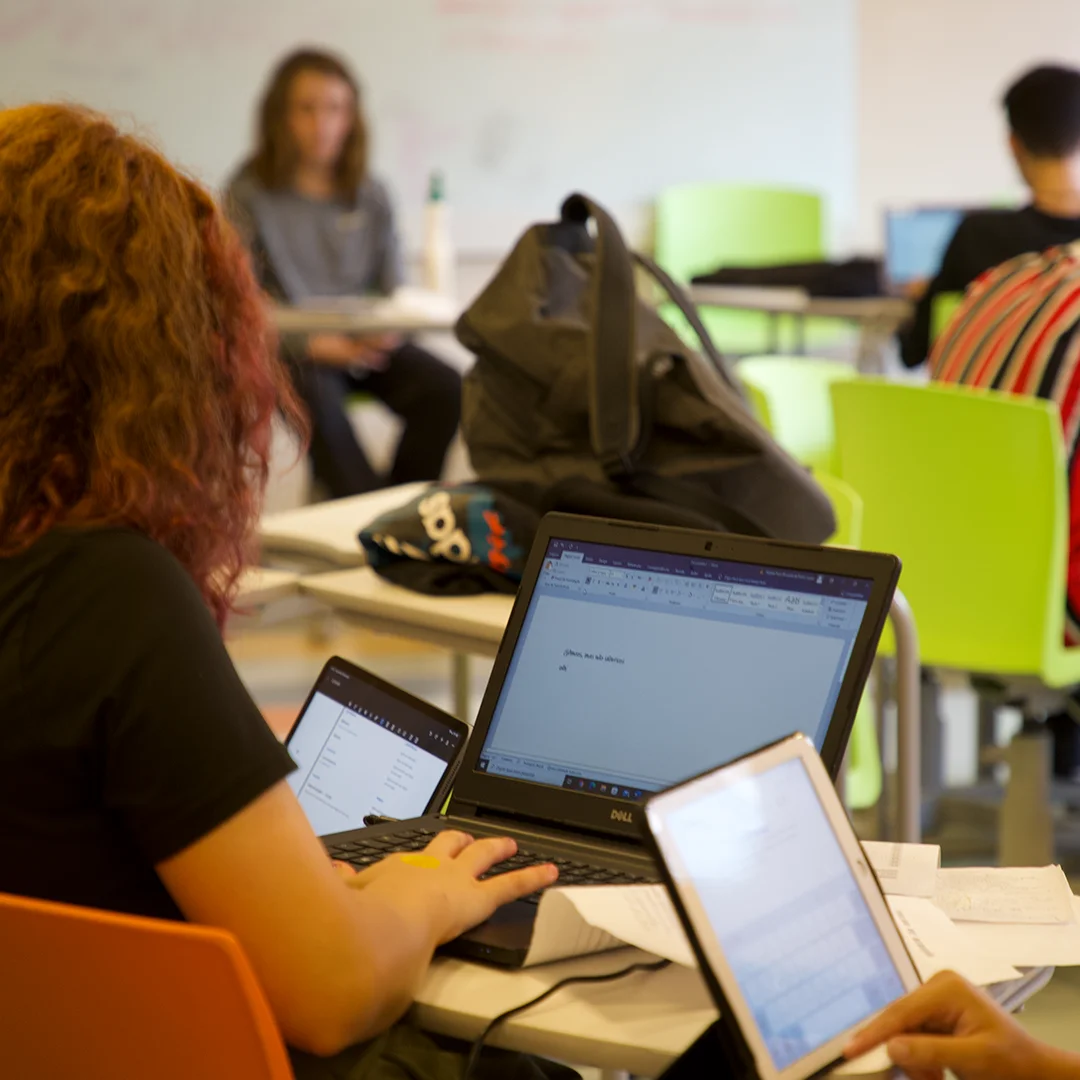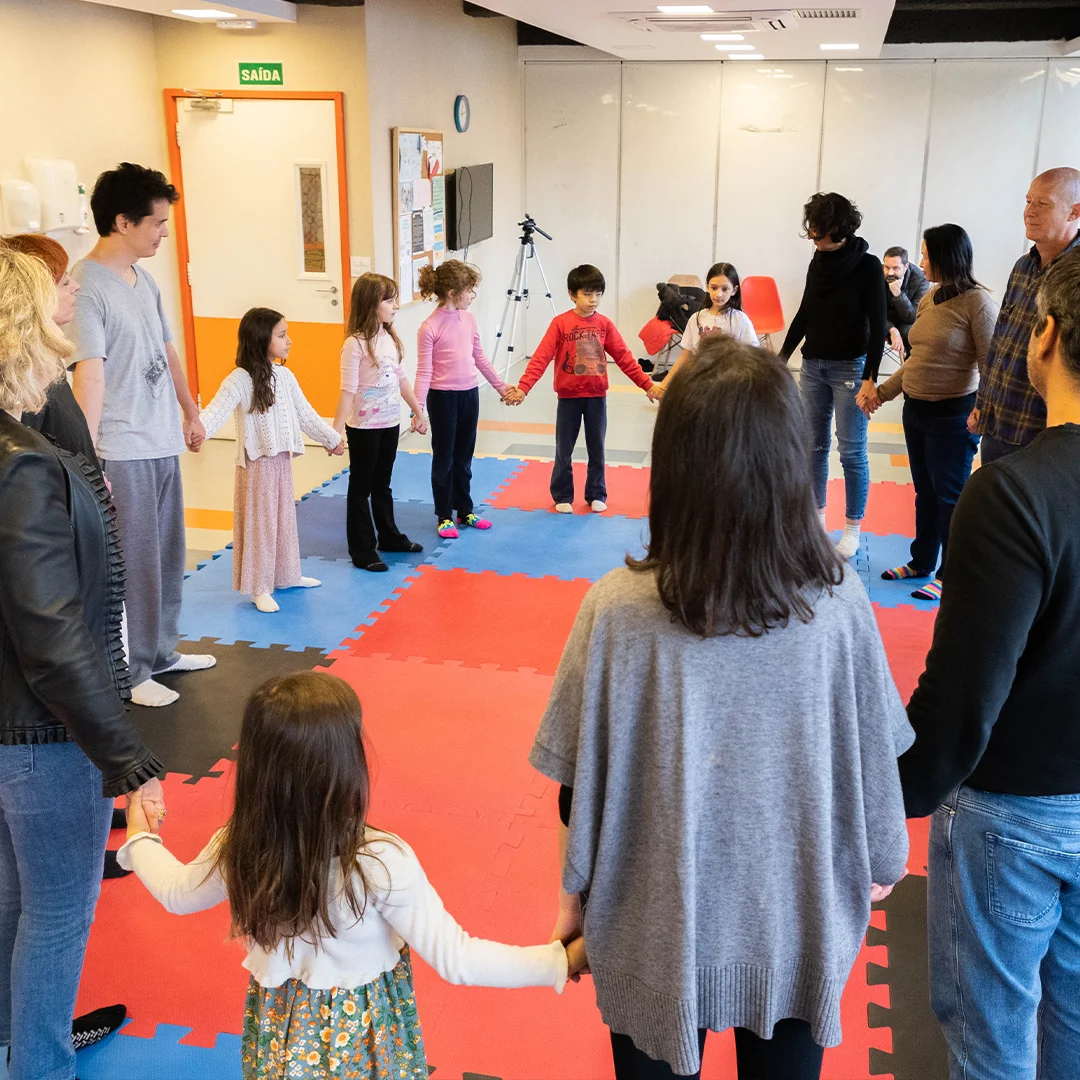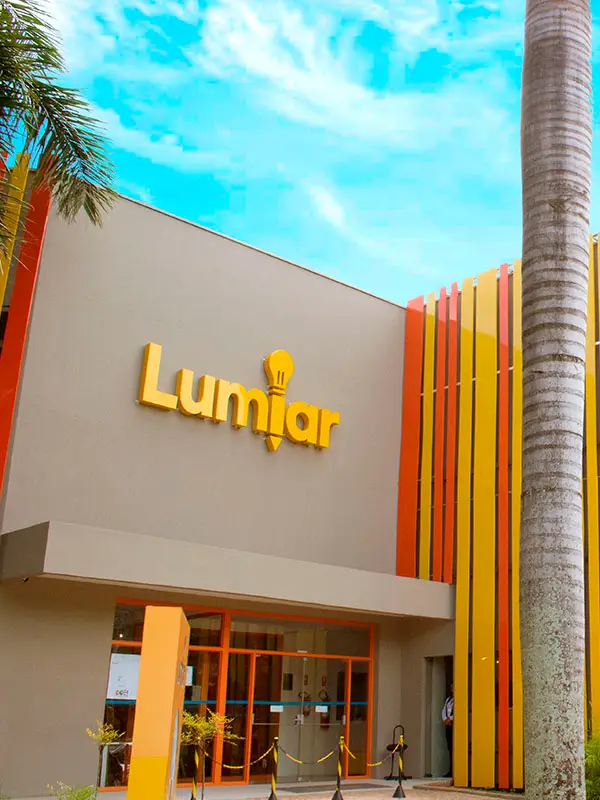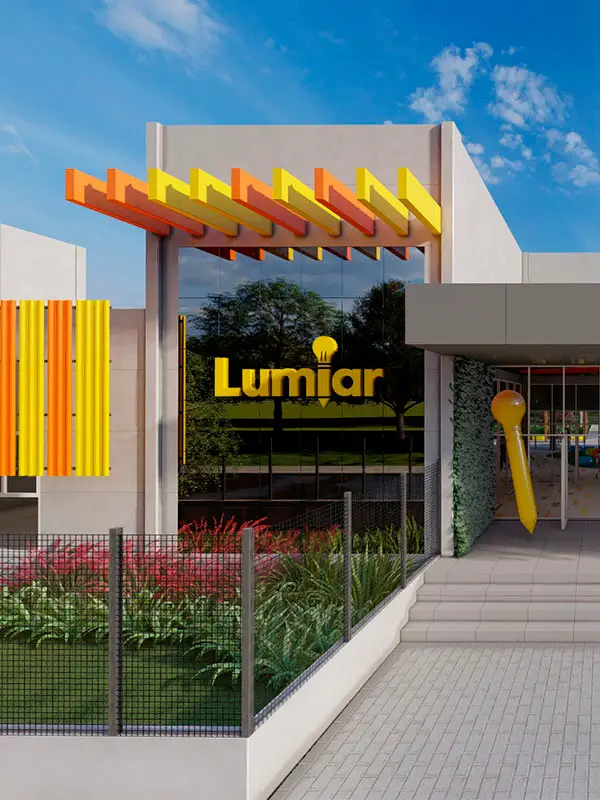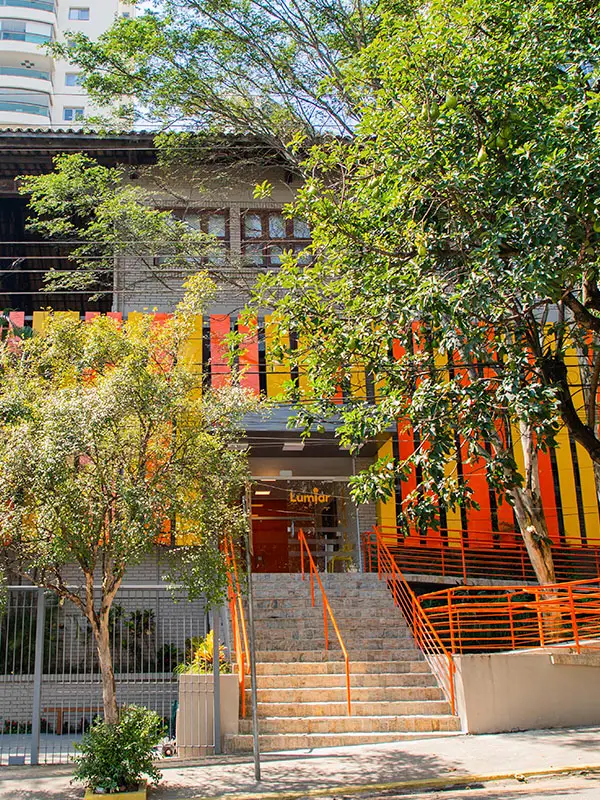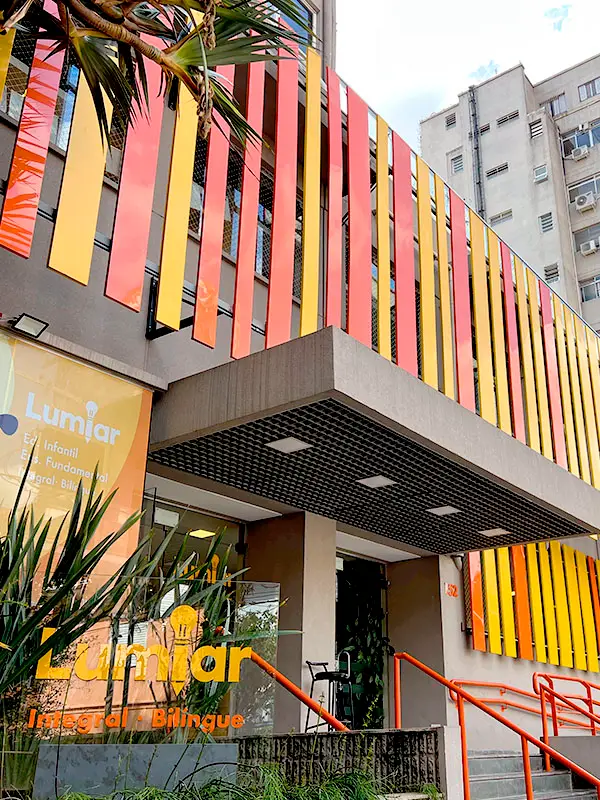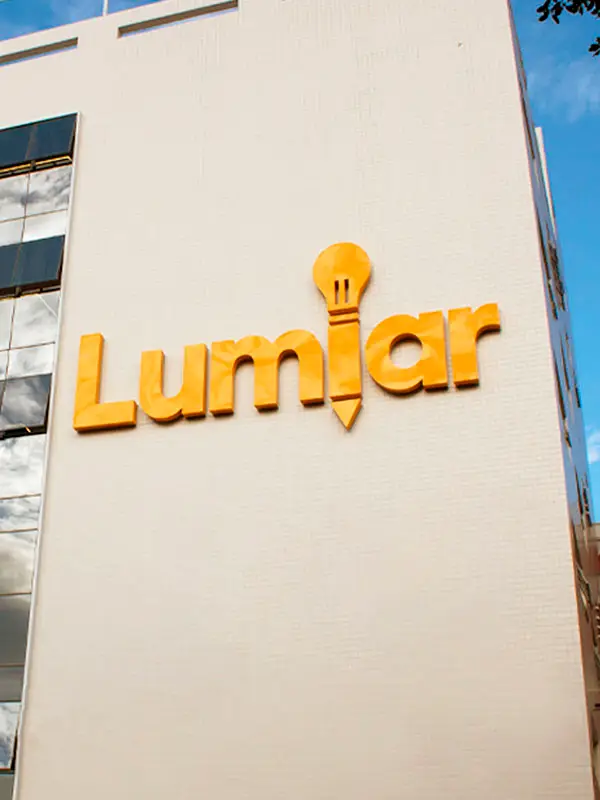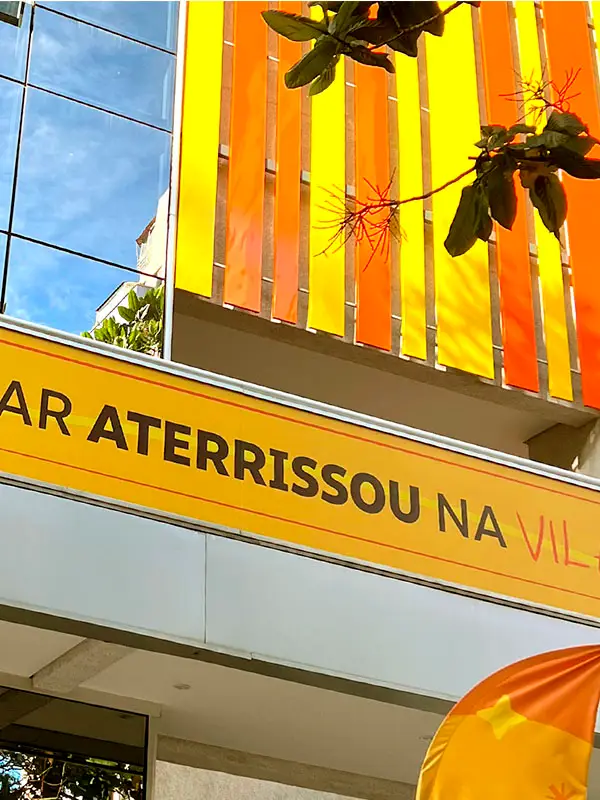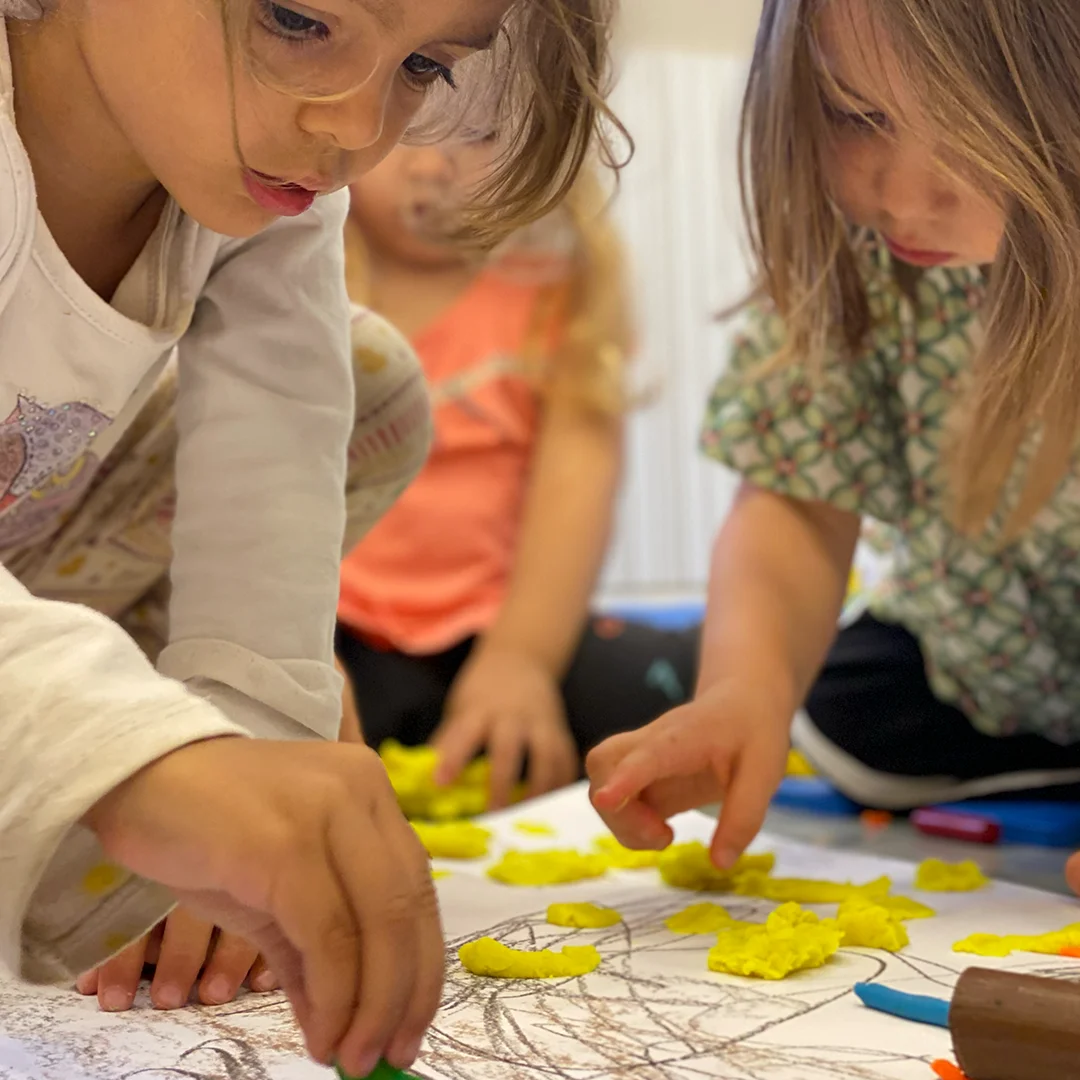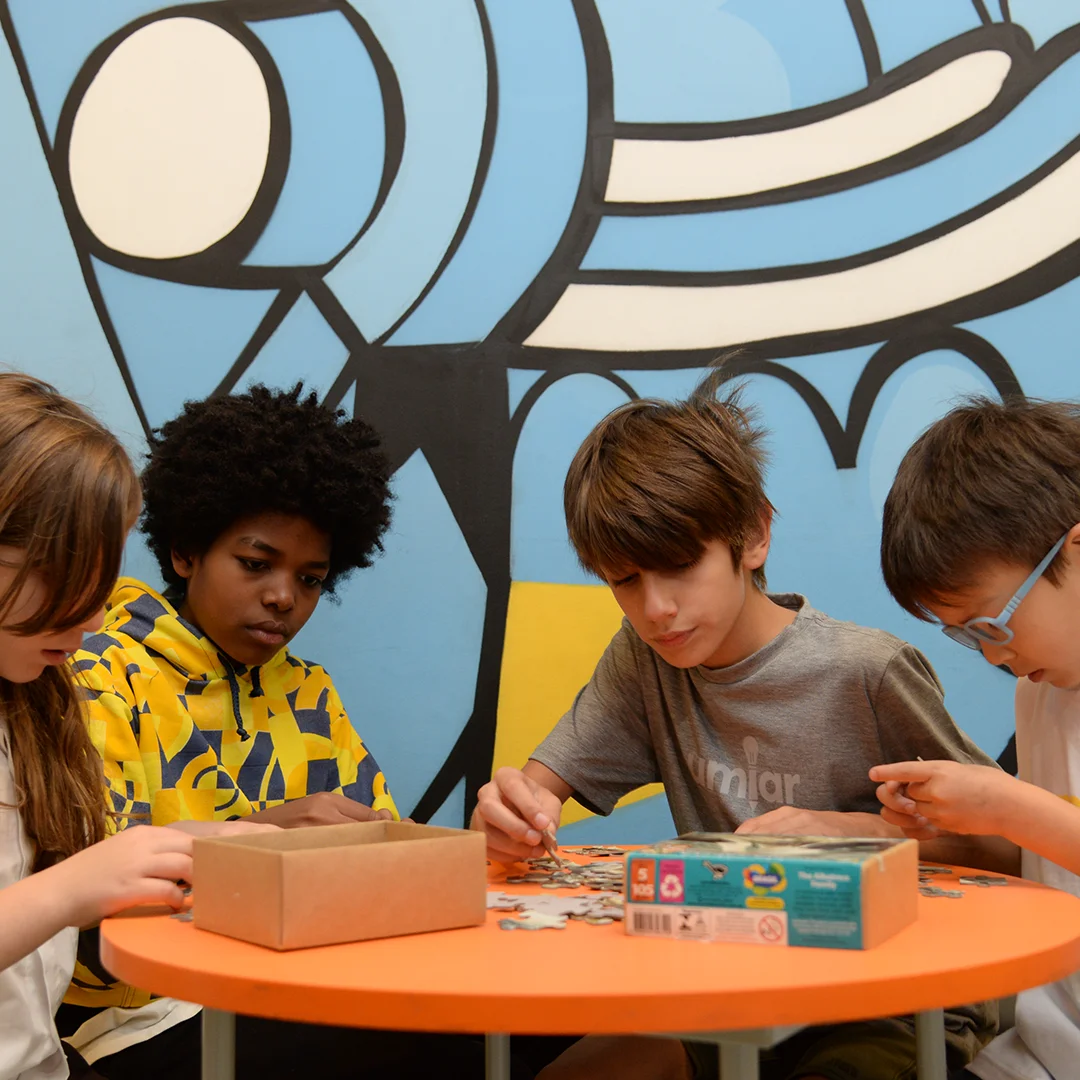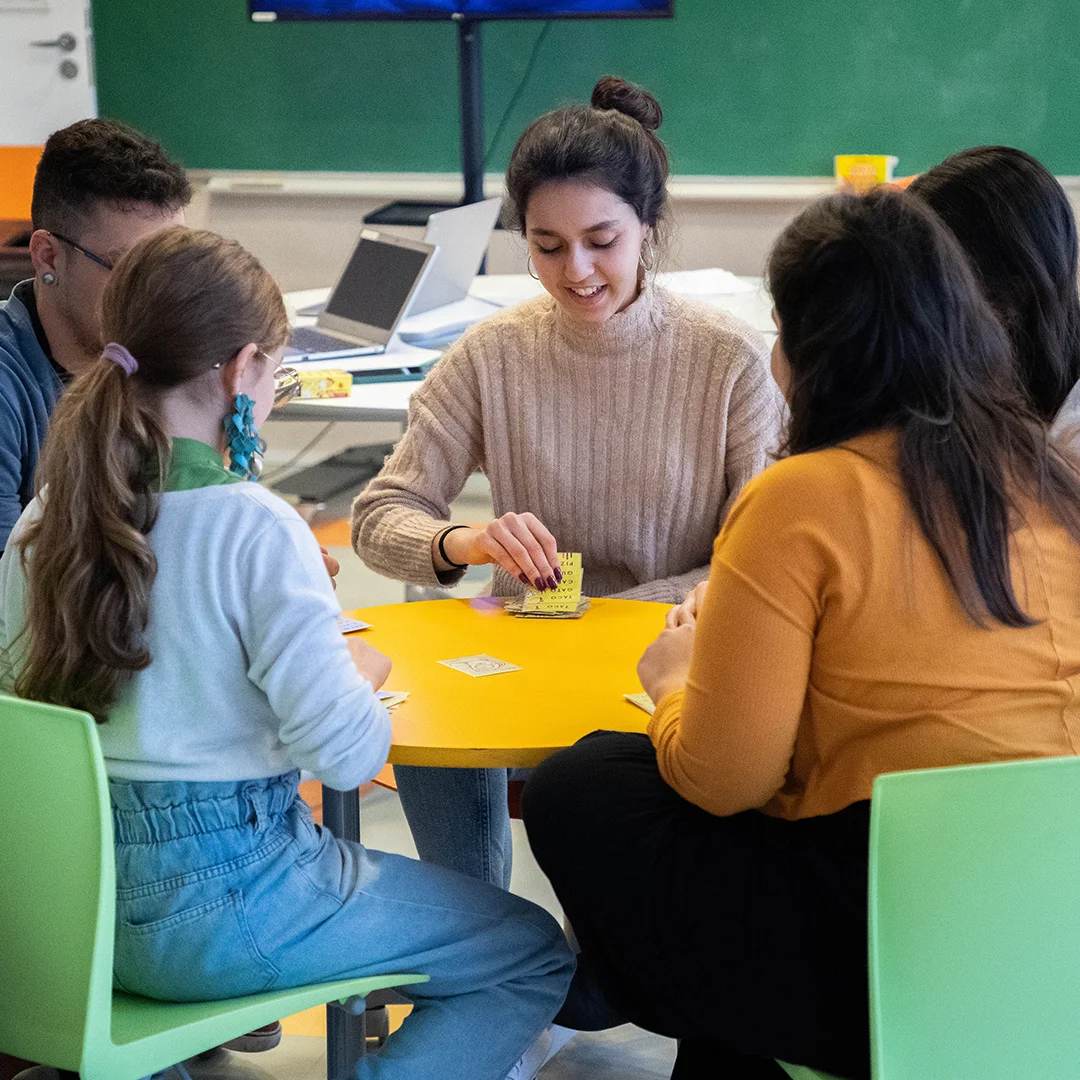Our methodology introduces the concept of project-based learning, which addresses skills and content according to the developmental expectations of each age group. Through hands-on, cross-disciplinary proposals that consider the interests and needs of the students, our goal is to make learning more meaningful and captivating, so children and young people study with more enthusiasm, purpose, and pleasure.
Shaping changemakers for the present and future.
SCHOOLS
Lumiar
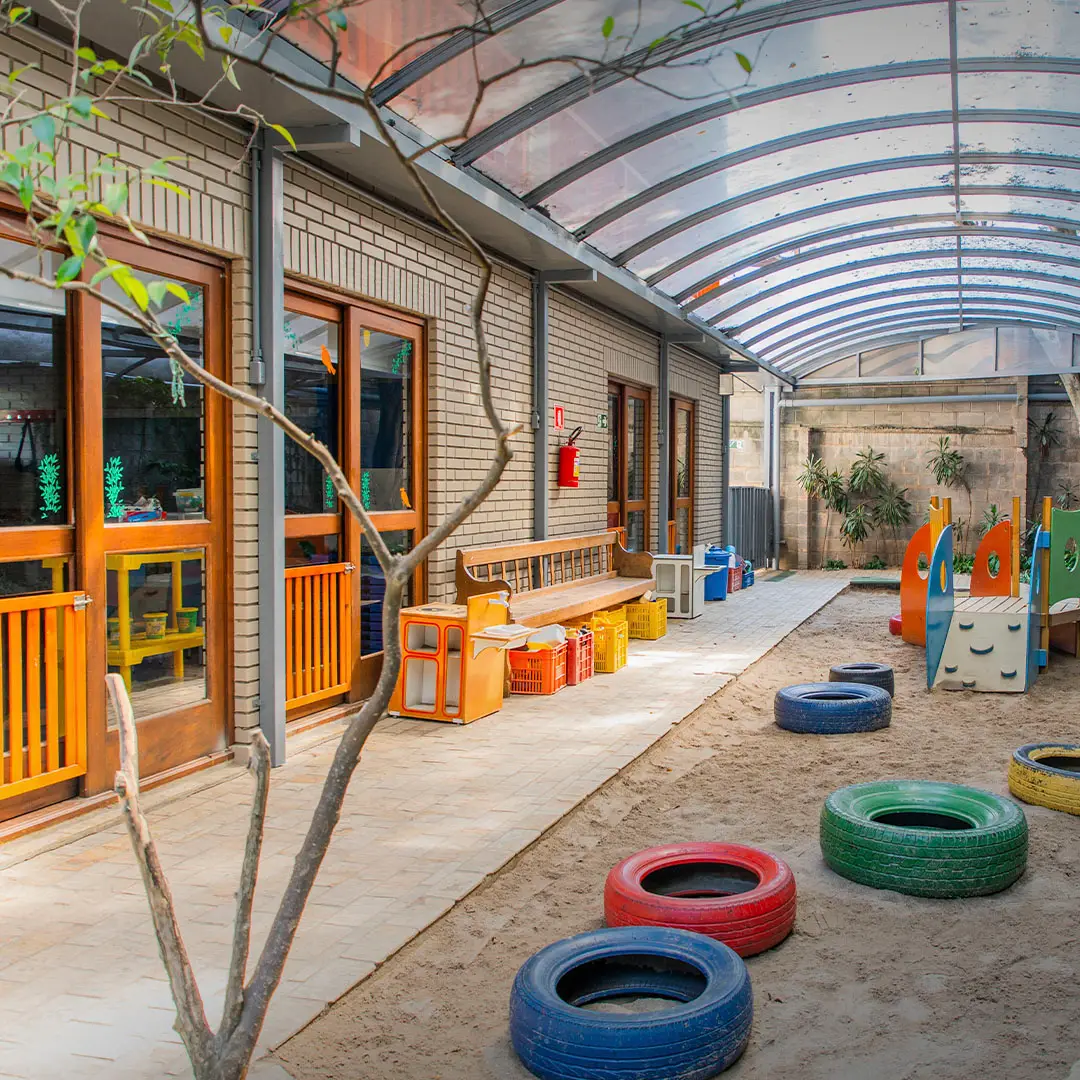
METHODOLOGY
RECO
NHECI
MENTO
Considered by UNESCO one of the most innovative schools in the world
In 2007, nominated by the United Nations Educational, Scientific and Cultural Organization (UNESCO) and in 2018, nominated by the Organization for Economic Cooperation and Development (OECD).
CYCLES
Lumiar has an educational focus for each learning cycle, starting by identifying the specific developmental needs for each age group.
Digital Mosaic platform
Designed to organize and document our methodology’s experience, the Digital Mosaic platform allows personalized tracking of each student’s learning. When accessing the platform, managers, educators, and students can register, observe, and evaluate in detail all educational proposals. Families can access the routine and practices developed by their children throughout the current school period, also viewing reports produced by masters and tutors, learning evidence, and student evaluations.
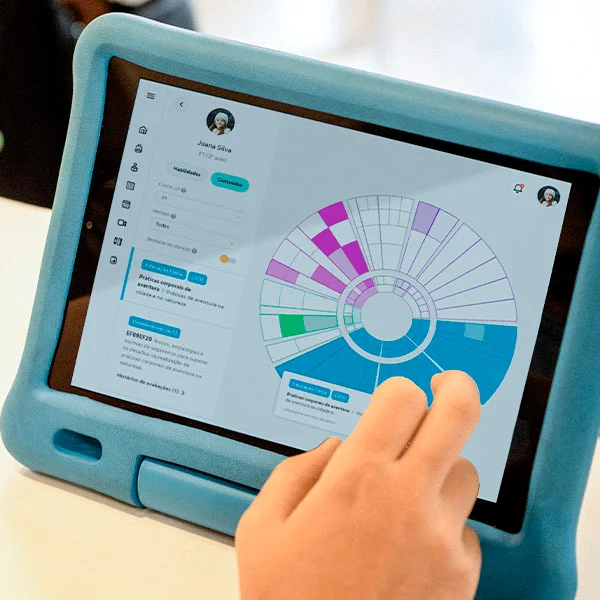
FAQ
Methodology
Are there teachers at Lumiar?
Yes, but their role is different from that played in most schools. We have two types of educators at Lumiar: tutor, the main person responsible for the class, and master, a professional invited to develop projects with the students.
What is the role of the tutors?
Tutors are educators or graduates who accompany the classes daily. They are responsible for identifying, valuing, and validating students’ interests and the group’s, ensuring proposals are pedagogically adequate to address individual and collective learning needs. Students stay with the same tutor for two or three years. This ensures deep knowledge of each one.
Their functions also include: introducing different subjects to the class – expanding everyone’s repertoire and stimulating students to always develop new interests; coordinating the projects with the masters; recording and reflecting on the students’ and group’s paths; tracking individual projects; organizing World Reading and Discussion circles with the class; conducting meetings and communicating with the families of their group’s students.
Do tutors and masters work together?
Yes. Tutors are mediators and managers of the group, responsible for actively organizing all projects in partnership with the masters, having access to planning, records, and evaluations at all times.
How does multi-age grouping work at Lumiar?
In the Lumiar methodology, students are grouped into multi-age cycles. They remain formally enrolled in grades equivalent to their age as in traditional school organization but attending their Lumiar cycle.
Early Childhood Education:
I1: students up to 2 years old
I2: students from 2 to 4 years old
I3: students from 4 to 6 years old
Elementary Education I and II
F1: students aged 6 to 8 years (1st to 3rd grade)
F2: students aged 9 to 11 years (4th to 6th grade)
F3: students aged 12 to 14 years (7th to 9th grade)
High School
M1: students aged 15 to 16 years (1st and 2nd years)
M2: students aged 17 years (3rd year)
And what are “cycles”? How do they work?
Cycles are fixed reference groups, composed of students of similar ages.
Students who make up these groups remain formally attached to the school year equivalent to their age in legal terms, as well as in official documents. Every school year, they move to the following grades, even if they remain in the cycles for a period of up to three years. Thus, every school year, the cycles are composed of different students.
These fixed groups for the current school year build their identity and work rhythm as they are managed participatively by a tutor. In this way, they create their routine, plan and carry out projects and other organizational modalities of school work, having a unique path for each elapsed year.
Each cycle has its structure and organization, but moments of meeting, exchange, and work with other cycles are also planned, both with all their members at the same time and among some members of each group. That is, multi-age exists both within and between cycles.
Projects and curriculum
Does Lumiar follow the curriculum proposed by MEC (Ministry of Education)?
Yes. Like all Brazilian schools, we use the Basic National Common Curriculum (BNCC) as a reference to build our curriculum. It consists of two matrices: one of competencies and skills and another of content, which are worked together in projects and other school practices. Moreover, the curriculum at Lumiar is not linear, meaning we don’t follow a predetermined route because we always start from the interests and pedagogical needs of students to plan our educational actions. The Mosaic platform allows individual tracking of students’ paths, mapping each one’s trajectory in covering the complete curriculum.
I didn’t quite understand how the idea of working with projects and skills works. What about content?
The projects address various cross-cutting themes, connecting more to original productions to be carried out, questions to be answered, and skills to be developed than to a discipline in itself. Imagine that students are interested in exploring political issues. Starting from the discussion of geographical and historical concepts of different selected places, they create a project whose goal is the authorial conception of a country. For this, they will not only research and explore geography content (cartography, borders) and history (conflicts, customs), but also Portuguese language (text production, stylistic resources, and argumentation) and arts (constitutive elements of visual arts, cultural heritage), since to create their country, they will need to think about various elements: language, flag, location, history, people, culture, among others. In addition, skills related to flexible thinking, global awareness, and collaboration are mobilized, essential for building critical thinking.
Does the school encourage projects to have practical proposals connected to the real world?
Definitely! There is a process of listening, negotiation, and mediation by the educator with the students to make this happen.
Everything at Lumiar starts with identifying individual and group interests and needs. Various activities and conversations are carried out to structure what students would like to learn and what they need to learn/develop according to their developmental stage.
An example from Lumiar Pinheiros’ Child 3 (4-6 years old): the children said they would like to build a “machine to save nature”. The tutor researched to identify environmental issues related to the current moment and presented these themes to the students. By reading the world and discussing the subject, they understood that humans were not using natural resources properly. Thus, one of the group’s conclusions was that water use could be more conscious, which would help nature. From this reflection, the class decided to build a cistern for Lumiar Pinheiros and, for this, had the support of a very special master, Damião, responsible for the school’s maintenance.
Do students undertake several projects at the same time? How does that work?
Yes. The group’s routine consists of various projects on different themes, taking into account multiple areas of knowledge as well as the interests and learning needs of students. In this way, every trimester, tutors conduct this survey, masters are called, and organization is carried out considering the following parameter:
Infant Cycles:
3-4 projects
F1:
6-7 projects
F2 and F3:
8-10 projects
High School:
14-16 projects
It’s worth noting that, in addition to projects, there are also modules, workshops, World Readings, Group Discussions, committees, reading times, study periods, and individual projects that make up the routine at Lumiar.
How is the assessment at Lumiar? Are there tests or not?
The assessment at Lumiar aims to record evidence of learning, the development of skills, and the understanding of content throughout the entire process. In addition to evaluations by tutors and masters, students also constantly self-evaluate.
We can use different assessment tools, always chosen according to the proposal to be evaluated and the intent of that evaluation – reports, posters, photographs, audio files, debates, presentations, among others.
Creating a podcast, for example, can be an excellent tool to assess if students understood the content covered in a project, can express themselves orally, produce a good script, and read fluently. Setting up an exhibition, on the other hand, requires students to engage with what was learned by revising and selecting materials, producing texts, and organizing the show, showcasing not only the understanding of the studied content but also the development of skills related to task management, expressiveness, and collaboration.
Tests are also assessment tools, and we believe they can serve to assess certain content and skills.
Family participation
How do families participate at Lumiar?
We believe that the relationship between school and families should be a partnership, so we are always available for dialogue. Throughout the year, guardians are invited to participate in individual meetings with the tutor and can request them whenever they feel the need.
Families have direct access and contact with educators and management to address specific student issues and participate in collective meetings with other community members to discuss more general issues.
Furthermore, we encourage family participation in students’ school life – in actions that ensure access to and the benefit of pedagogical practices and in social experiences promoted by the school. Thus, if they wish, guardians can contribute by sharing their passions, participating in committees, conducting World Readings, and/or applying to be masters.
How do families access what students are learning?
Families have access to the routine and projects developed by their children, both in the current school period and in previous periods, through the Mosaic platform. Guardians also view reports produced by masters and tutors, as well as learning evidence and evaluations.
At the end of a school period, families have access to the period report. This document contains their children’s mosaic, information, and evaluations of all the projects they developed, evaluations of everyday skills and knowledge areas, and the final report written by the tutor, with impressions and evidence of student development.
Technology
How are digital technologies used at the school?
We believe that working with various technologies is vital to connecting students with the present and the future.
We use digital technologies in meaningful ways for students that genuinely enhance their learning – not just use for the sake of using. We are also concerned about potential overuse, a challenge for everyone today.
Starting from the F2 cycle, students have a tablet as a teaching material. It is used as a research and recording tool and facilitates access to the Mosaic platform. Younger students also use digital technologies in moderation, avoiding unnecessary screen contact.
Routine
At Lumiar, students have a dynamic and flexible routine, not limited to the traditional classroom. Learning happens all the time, in different environments, contexts, and practices from transdisciplinary proposals and hands-on activities. Check out an example of the routine below:
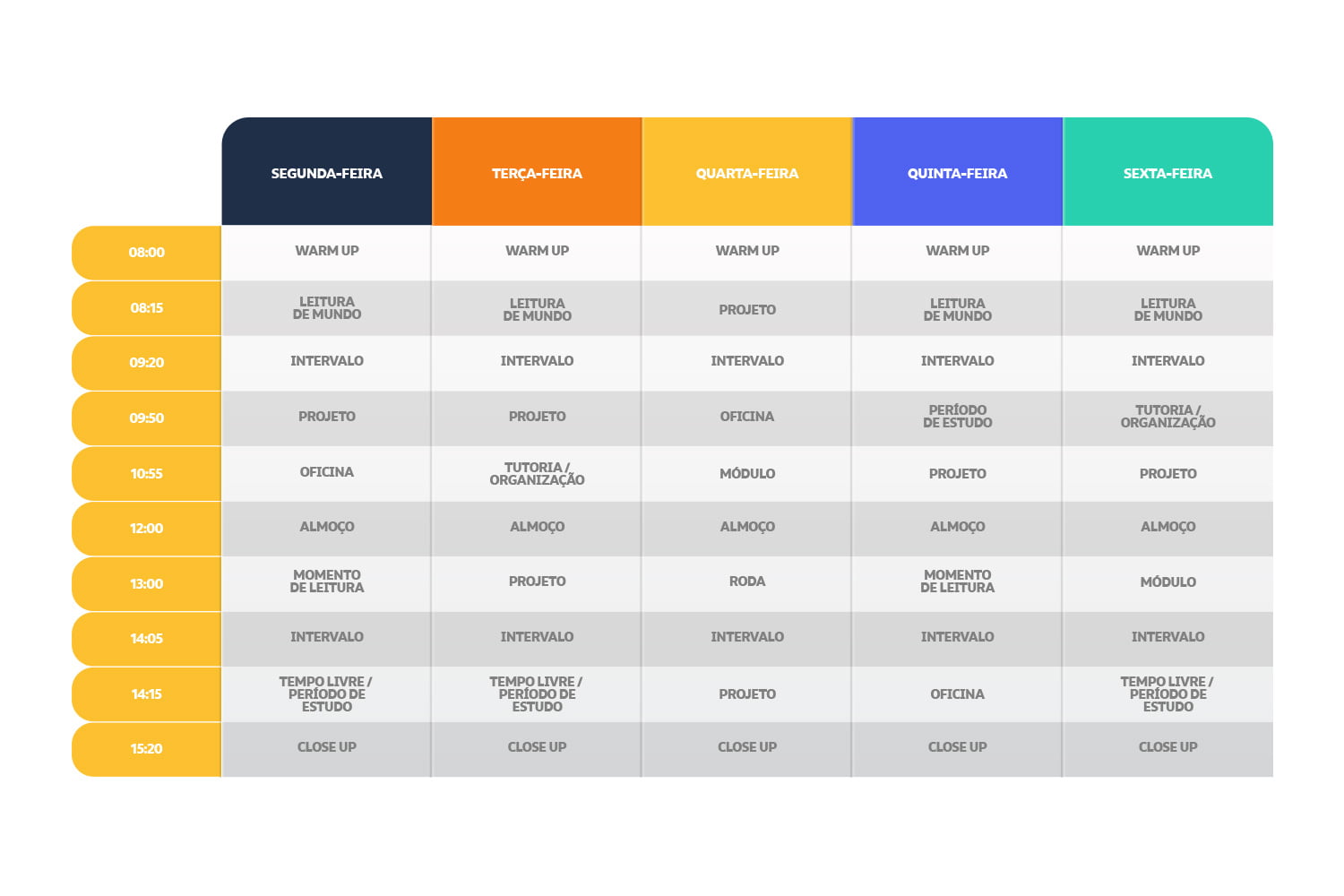
Lumiar practices
Projects
Our main practice. Their goal is to develop competencies and address content in an inter or transdisciplinary manner.
Workshops
Flexible practices that seek to develop skills and different topics relevant to the group, usually with more hands-on meetings.
Modules
They address the systematization of content or skills that will support a specific project. They consist of didactic sequences more similar to the “classes” of schools, but are always related to the class projects.
Discussion Group
A time that involves the whole school and addresses collective interest topics.
World Reading
A mode where students engage with their surroundings, current events, and news (through videos, interviews, readings, outings, etc.). It’s an essential time to introduce new references, stimulating new interests and inviting them to reflect and discuss, expand their sociocultural repertoire, and work on building a critical and questioning sense.
Individual Project
A time when students choose a topic to research, delve into, and create, structuring the planning and defining their objectives and the path to be taken, with the tutor’s support.
Reading Times
Opportunities for the development of autonomous reading.
Committees
Groups aiming to contribute to the school.
Group Discussion
Time to manage collective issues of a specific class/cycle.
Study Periods
Time to complete tasks, study, and delve deeper into topics of interest and pedagogical needs that require attention.
FAQ
TESTIMONIALS
”What I find most enchanting about Lumiar's methodology is the constant encouragement of each student's potential, always fostering autonomy, the development of creativity, and the importance of a collective sense.
DeniseMother of the student Arthur
”Lumiar pleasantly surprised me. The change in my son's behavior was very evident; he began to take an interest in school because he knew that there he would be welcomed, could express his ideas safely, and would be respected for his choices. I am very happy to be part of Lumiar!
CarlaMother of the student Gabriel
